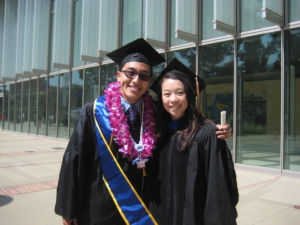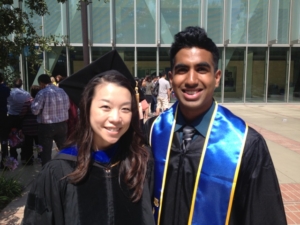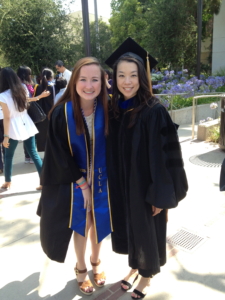Meet the Interns
Did you know that the DiSH Lab family got a little bigger? This summer, we were happy to welcome 3 wonderful interns from YULA High School. Currently enrolled in a two-year STEM program, the students were required to have volunteer experience working in a lab, and the DiSH Lab is honored that they chose us! Every Monday, the interns join us to get a glimpse of working in a lab. From running statistics to discussing articles to doing prep work for our studies, the interns are doing it all. So who exactly are these interns? Let’s meet them!

Aliza Amsellem
Aliza is going into her junior year at YULA High School and found Dr. Tomiyama’s DiSH Lab through her school STEM club. Since she was very young, the sciences intrigued her, but she has always felt a deep interest in human psychobiology. Because the DiSH Lab deals mainly with the effects of dieting on the brain, it was the perfect opportunity for her to truly experience the field in a college environment. She has already learned so much through exploring DiSH Lab articles and statistical data and has come to appreciate this subject on a completely different level. In her free time, she enjoys singing, drawing and painting, and, of course, eating all kinds of foods.

Ariel Amsellem
Ariel is going into his final year at YULA High School where he participates in the STEM program, which put him in touch with the DiSH Lab. As someone who loves to eat almost anything, the chance to intensely analyze food has kindled a new interest in the subject. Ariel cherishes this opportunity to learn more about the lab environment while providing as much help to the senior lab members as possible. Aside from his unquenchable zeal for scientific inquiry, Ariel enjoys to kick back by playing his saxophone and tennis.

Michael Shadpour
Going into his senior year of high school, Michael is both Student Council President and a dedicated member of the newly created STEM program at his high school, YULA. During his time at the DiSH Lab, Michael has reviewed several interesting papers about the psychology of eating and has learned a great about the use and value of statistical analysis in research. Michael has also made full use of valuable time appropriated to discussing college-life with several u ndergraduates working in the DiSH Lab.






